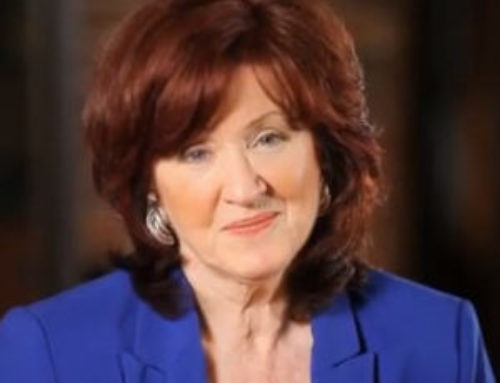
Infidelity can profoundly impact a relationship, creating feelings of betrayal, confusion, and heartbreak. While no one wants to suspect their partner of being unfaithful, recognizing the signs can help address concerns before they become more significant.
This blog highlights 27 common signs of infidelity, offering insights into behavioral changes, emotional distance, and other red flags. Additionally, we provide guidance on approaching the situation constructively and communicating effectively. Whether you are seeking to rebuild trust or gain clarity, these tips can support your journey toward resolution.
Chapter Guide
What Is Infidelity In A Relationship?
Infidelity is one of the most challenging issues a relationship can face, often leading to feelings of betrayal, insecurity, and mistrust. While no one wants to suspect their partner of being unfaithful, recognizing the signs early can help you address your concerns before they escalate. It’s important to remember that noticing potential red flags doesn’t necessarily confirm infidelity but provides an opportunity to communicate and seek clarity.
This blog outlines 15 common signs of infidelity, offering insights into emotional, behavioral, and external indicators that might suggest something is amiss. Additionally, we’ll discuss how to handle suspicions constructively and work toward resolving conflicts. Whether you seek to rebuild trust or gain a deeper understanding of your relationship, this guide supports you.

27 Signs of Infidelity In A Relationship
Here are 15 signs of infidelity in any kind of relationship:
Emotional and Behavioral Changes
Emotional and behavioral changes are often the first noticeable signs of infidelity in a relationship. These shifts may not always confirm unfaithfulness, but they indicate that something is affecting your partner emotionally or mentally. Here are some key changes to watch for:
1. Increased Secrecy
A partner who suddenly becomes more secretive may be trying to hide something. They might guard their phone, avoid leaving it unattended, or change passwords without explanation. This increased desire for privacy could indicate concealing conversations or interactions.
2. Emotional Distance
It might be a sign of emotional withdrawal if your partner seems disconnected, less engaged, or indifferent toward you. They may avoid spending quality time together, lose interest in shared activities, or seem distracted when you talk. This emotional gap often leaves the other partner feeling neglected.
3. Unusual Defensiveness
When asked simple questions, a sudden increase in defensiveness could indicate guilt or the fear of being caught. For example, if you ask about their day and they overreact or accuse you of being suspicious, it might be an attempt to deflect attention.
4. Mood Swings
Frequent and unpredictable mood changes can be another behavioral indicator. A partner engaging in infidelity might show irritability, guilt, or frustration, often unrelated to external circumstances.

Changes in Routine or Habits
Changes in a partner’s routine or habits can be another strong indicator of infidelity. While shifts in daily patterns are normal over time, sudden, unexplained changes might warrant closer attention. Here are some common behaviors to look out for:
5. Frequent Unexplained Absences
If your partner spends more time away from home without reason, it could raise suspicions. They may claim to be working late, taking up new commitments, or attending events you’re not invited to. Repeated vague explanations for their whereabouts can indicate they are hiding something.
6. Sudden Interest in Appearance
A noticeable change in how your partner dresses or grooms themselves might suggest they’re trying to impress someone new. If they suddenly start buying new clothes, wearing cologne or perfume more often, or paying extra attention to their physical appearance, it could be a sign of infidelity.
7. New Hobbies or Interests
Taking up new activities or hobbies isn’t inherently suspicious, but excluding you from these pursuits might be. If your partner becomes secretive about their new interests or avoids including you, it may point to deeper issues in the relationship.
8. Unreachable at Odd Times
It could be a red flag if your partner is frequently unreachable during certain hours or doesn’t promptly respond to calls and texts. Excuses like “I was busy” or “My phone was off” may be valid occasionally but could signal dishonesty if they happen repeatedly.

Financial Red Flags
Financial changes often accompany infidelity, as maintaining secrecy in a relationship can involve unexplainable spending. These red flags can provide insight into behaviors that might otherwise go unnoticed. Here are some financial signs to watch for:
9. Unexplained Expenses
It could indicate hidden spending if you notice unusual charges on credit card statements or frequent cash withdrawals. These might be for hotel bookings, gifts, or meals that your partner hasn’t shared with you. Questioning these transactions may provide clarity, but evasive responses can be telling.
10. Secretive About Money
A sudden reluctance to share financial information or discuss joint accounts can be suspicious. If your partner starts hiding receipts, avoiding conversations about money, or creating private accounts, it may signal an attempt to conceal spending.
11. Lavish Spending on Themselves
An uncharacteristic increase in spending on personal items such as new clothes, accessories, or grooming products might indicate that the person is trying to impress someone else. While self-care is natural, sudden and excessive expenditures without an apparent reason could be a warning sign.
12. Reduced Contributions to Shared Expenses
If your partner contributes less to household expenses or has shifted spending priorities, their finances could be diverted elsewhere. This change in financial behavior might correlate with infidelity.

Communication Changes
Open and honest communication is a cornerstone of healthy relationships. When communication patterns shift abruptly, it could signal underlying issues, including infidelity. Here are some common communication-related red flags to watch for:
13. Decreased Communication
It may indicate emotional withdrawal if your partner starts avoiding meaningful conversations or seems uninterested in discussing daily activities. They might become distant, offering short or vague responses or avoiding discussions altogether.
14. Increased Defensiveness
When questioned about their behavior, a partner engaged in infidelity might become unusually defensive. They may accuse you of being paranoid or overly controlling to deflect attention from their actions, making it challenging to address concerns.
15. Frequent Arguments
Conflicts that arise out of nowhere or escalate over minor issues can be a red flag. This behavior might be an attempt to create emotional distance or justify spending time apart from you.
16. Lack of Transparency
Transparency is crucial in a healthy relationship. If your partner starts dodging questions, changing topics, or giving inconsistent answers about their activities, it may indicate they’re hiding something.
17. Overcompensation
Conversely, a partner might overcompensate by being excessively attentive or complimentary. This behavior often stems from guilt and is used to divert suspicion.

Relationship Intimacy
Intimacy is a vital component of a healthy relationship. Changes in physical or emotional closeness can be one of the most telling signs of infidelity. While these shifts can sometimes result from stress or other personal factors, they may also indicate more profound issues. Here are some common signs related to intimacy:
18. Decline in Physical Intimacy
A sudden drop in physical affection, such as reduced kissing, hugging, or sexual activity, can be a red flag. Your partner may seem disinterested or emotionally detached, which could signal that they’re seeking intimacy elsewhere.
19. Increased Criticism of Intimacy
If your partner begins criticizing your appearance, habits, or approach to intimacy, it may reflect dissatisfaction in the relationship. This can sometimes be a projection of their guilt or a way to justify their behavior.
20. Sudden Overcompensation
On the other hand, a partner engaging in infidelity might unexpectedly become more affectionate or intimate. This overcompensation can be a way to alleviate guilt or divert suspicion, but it often feels forced or inconsistent.
21. Emotional Disconnect
Infidelity isn’t just physical; emotional cheating is equally impactful. If your partner seems emotionally unavailable, avoids deep conversations, or stops sharing their thoughts and feelings, it could indicate they are investing emotionally in someone else.
22. Unexplained Changes in Preferences
A partner who suddenly introduces new preferences or behaviors in intimacy that seem out of character might have been influenced by someone else. This doesn’t confirm infidelity but can warrant a conversation.

Social and External Indicators
Changes in your partner’s social behavior and external cues from others can provide subtle but essential signs of infidelity. While these signs aren’t definitive proof, they often point to shifts in the relationship dynamics. Here are some social and external indicators to consider:
23. Friends Acting Differently
If mutual friends or your partner’s close circle seem distant, uncomfortable, or overly cautious around you, it could suggest they know something you’re not. Friends often know more about what’s happening behind the scenes and may avoid you to prevent slipping up.
24. New Social Circles
Sudden involvement with new friends or social groups can be a red flag, notably if you’re excluded. Your partner may use this new circle to spend time with someone they’re interested in.
25. Suspicious Technology Usage
Technology can reveal a lot about someone’s behavior. Watch for signs such as deleted messages, hidden apps, or your partner taking their phone everywhere, even to the bathroom. Increased time spent on devices without explanation may indicate secretive communication.
26. Inconsistent Stories
If your partner’s explanations about their whereabouts or activities don’t add up, it’s worth noting. Contradictions, vague details, or changing accounts of events are often attempts to cover up dishonesty.
27. Sudden Changes in Social Media Activity
Your partner’s social media behavior may also change. Posting less about your relationship, interacting with new people frequently, or hiding their online activities could be potential red flags.

How to Approach the Situation?
Discovering or suspecting infidelity is an emotionally charged experience, and approaching the situation thoughtfully is crucial. A constructive approach can help you find clarity, preserve your dignity, and determine the best path forward for your relationship. Here’s a guide to addressing the situation effectively.
Reflect on Your Feelings and Observations
Before confronting your partner, take time to reflect on your suspicions. Consider what behaviors or changes have raised concerns, and ensure you have specific examples to discuss. Emotional clarity is important—approaching the conversation from a place of anger or frustration may escalate conflict rather than lead to productive dialogue.
Choose the Right Time and Place
Timing and environment are key to a meaningful discussion. Choose a private, calm setting where you can talk without interruptions. Avoid addressing the issue during high tension or when you are stressed or distracted.
Approach with Empathy and Calmness
Starting the conversation with accusations can cause defensiveness and shut down communication. Instead, use “I” statements to express your feelings and observations. For example, say, “I’ve noticed some changes in our relationship, and I feel concerned,” rather than, “You’re hiding something from me.”
Be Prepared for a Range of Reactions
Your partner may respond with denial, defensiveness, guilt, or counter-accusations. Stay calm and focused on your goal of understanding their perspective. If they deny any wrongdoing, try not to dismiss their response immediately. Instead, ask open-ended questions to encourage honesty.

Avoid Emotional Outbursts
While feeling hurt or angry is natural, keeping your emotions in check during the conversation can lead to better outcomes. Emotional outbursts may prevent your partner from being open or make them feel attacked, reducing the chances of resolving the issue constructively.
Focus on Solutions, Not Blame
Instead of dwelling on accusations, steer the conversation toward solutions. Discuss what changes you both can make to rebuild trust and improve the relationship. Whether it’s setting boundaries, attending therapy, or working on communication, a forward-looking approach can help strengthen your connection.
Consider Professional Support
If the conversation feels overwhelming or unproductive, seeking professional help can be valuable. Couples counseling provides a neutral environment where both partners can express their concerns and work through challenges with the guidance of an expert.
Be Open to All Outcomes
While addressing the situation, it’s essential to remain open to different possibilities. If infidelity is confirmed, decide whether reconciliation is possible and what boundaries need to be established. If trust cannot be rebuilt, it may be time to evaluate whether the relationship aligns with your emotional well-being.
Final Words
Infidelity is one of the most challenging issues a relationship can face, but it doesn’t have to define its future. You can determine the best path forward by recognizing the signs and approaching the situation with empathy and clarity.
Whether you rebuild trust or move on, taking steps to address the issue is essential for personal and relational growth. For expert support and guidance, Parent Marriage offers trusted counseling services to help couples navigate these challenges and strengthen their bonds.






Leave A Comment